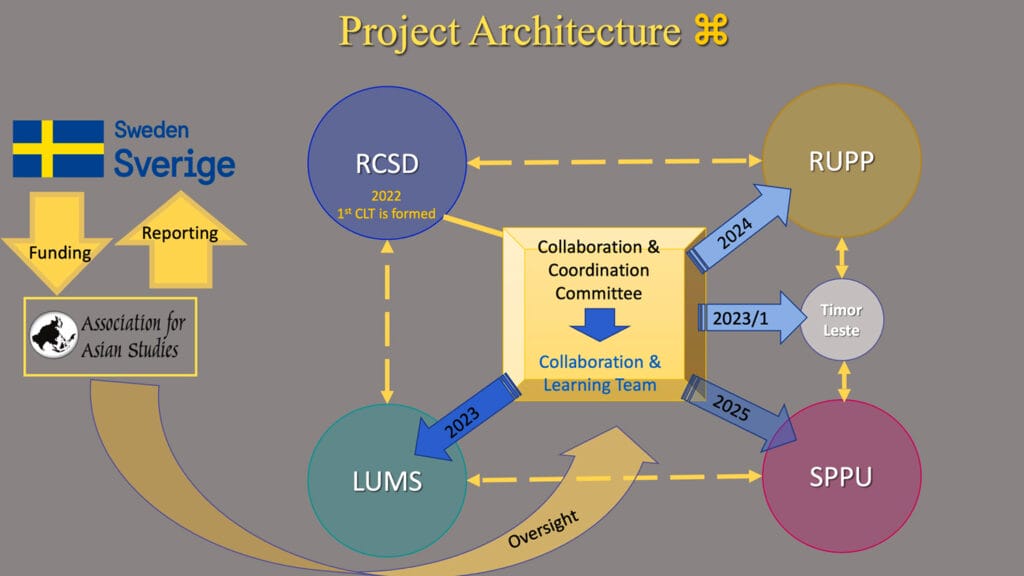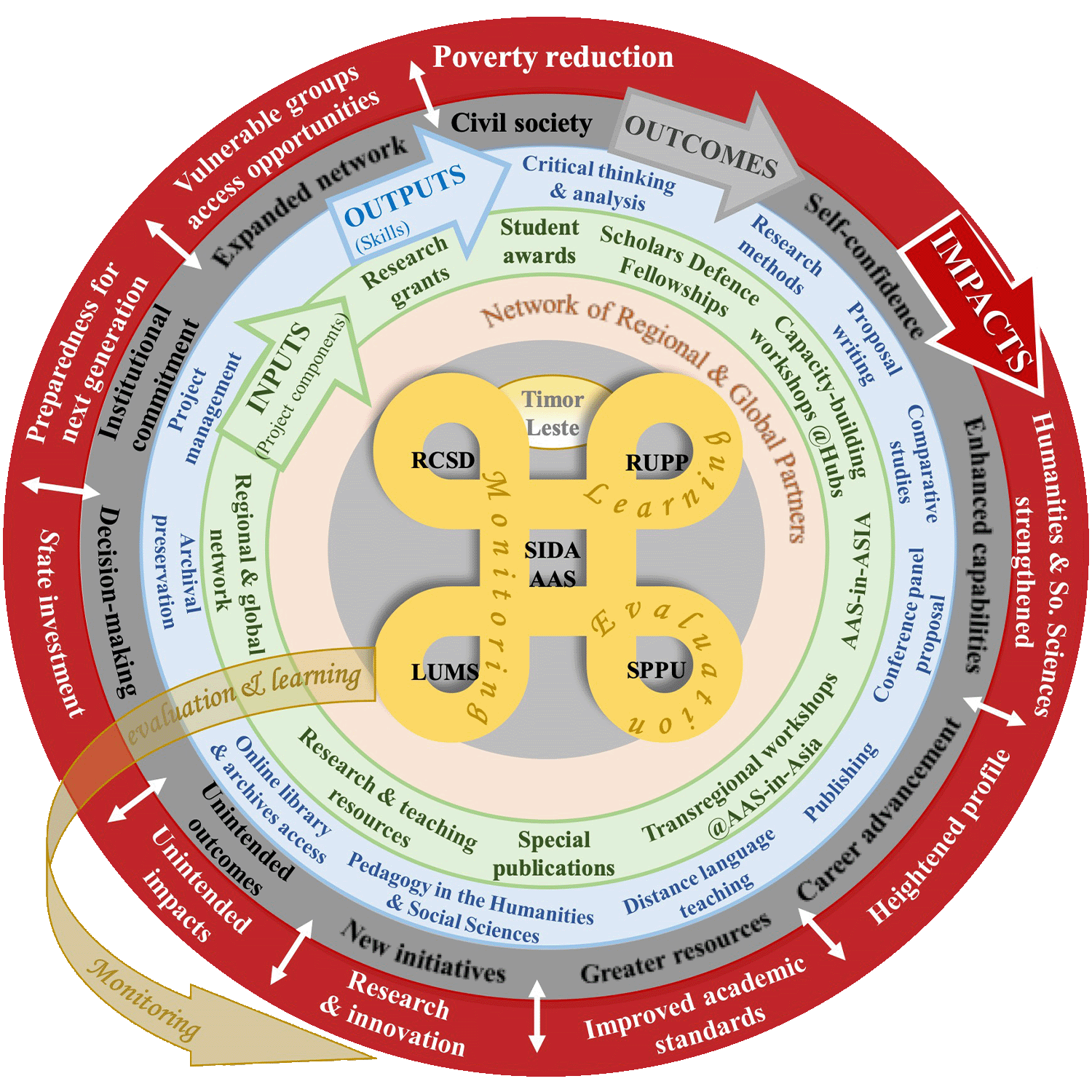Reducing the vulnerabilities of Southeast and South Asian low-income countries through policy-pertinent research
SOUTHEAST ASIA & SOUTH ASIA
About CHSS

CHSS Project Hubs and Focus Point in South and Southeast Asia
To lay a solid foundation of this project, we will build on the selected institutions’ strategic geographical locations, teaching resources, and accounting and reporting capabilities.
Project Management and Implementation
Overall project management is with the AAS that has an agreement with SIDA. The AAS Board has appointed a Special Initiatives Committee to provide guidance and support to the AAS Special Initiative Director who is vested with the overall responsibility of implementation. While the AAS Special Initiatives Committee provides overall guidance to the project, specific project-related management is carried out by the Collaboration and Coordination Committee (CCC). This Committee, a Collaboration and Learning Team (CLT), is to be in charge of Monitoring, Evaluation and the Learning (MEL) work of the project.
The Project is implemented by the four Hubs and the Focus Point in their respective countries and regions under the Director Special Initiatives. The cross country/regional initiatives are coordinated by the Director of Special Initiatives with the support of a CHSS team which includes a Financial Controller and MEL Facilitator.

Participants
Effecting Change: Cultivating the Humanities and Supporting Under-Represented Scholars of Asia
This transnational initiative will enhance the research capabilities of scholars and universities in select South and Southeast Asian countries. This project aims to reduce the vulnerabilities of low and lower-middle-income countries in the region, in line with the regional development policies.

Project Targets
Early-career faculty
Women
Graduate Students
Senior independent scholars
Ethnic communities
Other vulnerable groups
Underserved institutions in low-income, post-conflict or conflict countries of South and South-east Asia.

Preconditions
Target groups willing to participate
Leadership and internal controls in place
Partners share projects values and goals

Assumptions
Political context is favourable
Pandemic causes limited delays
Selection process is equitable, inclusive and diverse
Funds are used for intended purposes
Effective communication
MEL framework is productive
Local ownership
The Theory of Change in action
The CHSS four project components aim to recreate the academic research cycle. We have created a Collaboration and Coordination Committee (CCC) to:
- Coordinate strategic plans;
- Facilitate communication between implementing partners;
- Give equitable access and decision-making to under-represented countries;
- Support scholarly exchange; and
- Gradually instil project ownership.

The CCC will be composed of a resource person representing each of the project partner (AAS, the four regional hubs and the Timor-Leste Focus Point).
